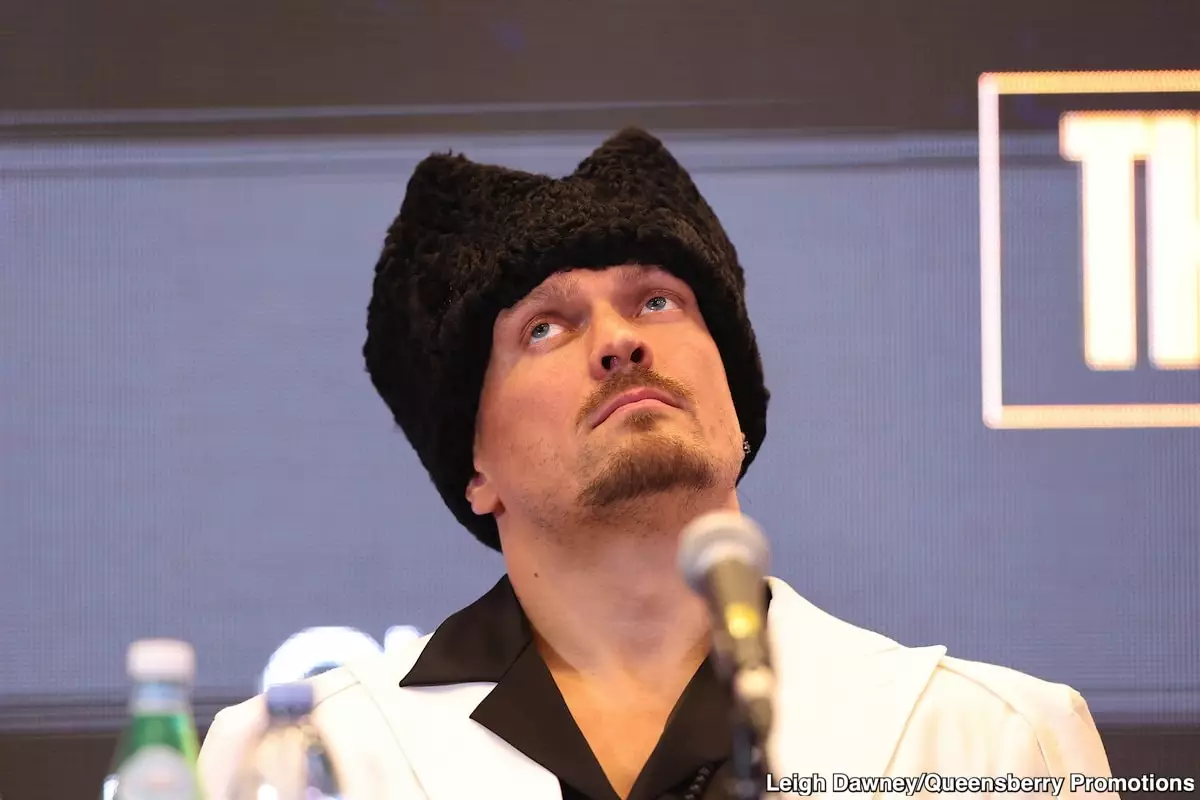Tyson Fury’s recent outburst on social media reveals more about his bravado than genuine insights into the current heavyweight landscape. Declaring Moses Itauma as the future destroyer of legends like Anthony Joshua, Dillian Whyte, and Oleksandr Usyk exemplifies a dangerous overconfidence rooted in youthful hype rather than seasoned analysis. Fury’s assertions serve as a classic reminder of how star power and bravado often distort the reality of the sport. While Itauma undeniably exhibits promise—it is premature, and perhaps naive, to elevate a teenager to the level of heavyweight savior. Fury seems to conflate potential with proven dominance, sometimes overlooking the nuances that separate optimism from real threat. His dismissive attitude toward seasoned champions like Usyk, labeling them as “spent forces,” signals a hunger to elevate the new generation without weighing the resilience, skill, and tactical genius that the veterans possess.
Fury’s words should be critically examined rather than accepted at face value. His overconfidence reveals an underlying insecurity—his claim that boxing is “a young man’s game” and the suggestion that he’s past his prime are veiled hints that he views himself as less formidable than before. This cognitive dissonance fuels his hype for Itauma, but it also diminishes the technical richness that makes heavyweight fights compelling. Such statements risk underestimating seasoned fighters who have repeatedly demonstrated that age alone isn’t a decisive factor; experience, adaptability, and ring intelligence matter immensely, qualities that champions like Usyk exemplify.
The Reality Check: Why Usyk’s Skill Set Trumps Youthful Boldness
While Fury dismisses Usyk as a broken down relic, the facts paint a starkly different picture. Usyk’s mastery over the ring—his footwork, tactical intelligence, and ability to control pace—positions him as one of the most formidable operators among heavyweights, regardless of age. Fury’s underestimation of Usyk’s skill reveals a preference for spectacle over substance. Usyk’s style doesn’t rely on raw power alone but instead leverages movement and strategy, making him notoriously difficult to beat. He has proven his ability to dismantle bigger opponents with minimal fuss, an attribute not easily matched by youthful exuberance.
To suggest that Itauma, at only 20, could dominate someone like Usyk immediately is naive at best. Itauma’s underdog status and impressive potential are obvious, but elevating him to immediate contender status just because Fury calls him “the future” does a disservice to the realities of professional boxing. Power fades, but techniques like Usyk’s—based on years of refining craft—are what separate champions from prospects. If these two were to meet, experience and tactical nuance would likely overshadow raw enthusiasm, and Usyk’s prior performances suggest he would comfortably outsmart the still-developing Itauma.
Risks of Hype and the False Hope of Youth
Fury’s endorsement of Itauma embodies a broader issue in boxing: the dangerous allure of hyped prospects who are lauded before maturity. History reminds us that many fighters labeled “the future” have fallen into obscurity—Jared Anderson being the latest example—when the hype factor outweighs the actual skill needed to compete at the highest level. Fury’s blanket declarations about the entire division being “old” and ripe for the picking reflect a reckless oversimplification, ignoring the resilience and adaptability of seasoned champions.
Promoters and fighters often shop with exaggerated optimism—sometimes intentionally—to sell fights or reignite fan interest. Yet beneath this veneer of bravado lies a deeper necessity for humility. Recognizing the depth of talent in the heavyweight division means acknowledging that youth alone doesn’t guarantee victory; maturity, experience, and mental toughness often play pivotal roles. By blindly endorsing Itauma’s potential and dismissing the current giants, Fury risks subscribing to a narrative that could backfire if the young fighter isn’t prepared for the brutal reality of top-tier boxing.
In the End: A Cautionary Tale of Overconfidence in the Ring
Fury’s bold proclamations highlight an ongoing debate within boxing—how much faith should be placed in hype versus proven excellence? While it’s tempting to believe in the next big thing, history repeatedly shows that genuine greatness is forged through battles, patience, and resilience over time. Itauma might indeed be the real deal, but claiming he’s ready to topple legends like Usyk or Joshua prematurely magnifies youthful promise into standing theology.
True heavyweights aren’t built solely on power and punchlines; they are shaped by seconds, minutes, and years in the ring. Tyson Fury’s bravado, while entertaining, underscores a broader need for humility. Believing that age is the enemy disregards the seasoned fighters’ experience and strategic prowess. As much as Fury’s words are designed to generate hype, they should also serve as a reminder: in boxing, real power resides in consistency, heart, and the ability to adapt—not just in youthful bravado and social media soundbites.

